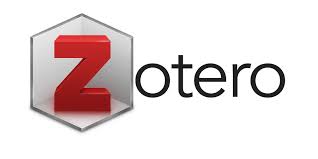Analisis Berpikir Literasi Matematika Berdasarkan Kecerdasan Logika Matematika Siswa SMP
DOI:
https://doi.org/10.29240/ja.v2i2.1702Keywords:
Analysis, Literation, Mathematics Logic IntelligenceAbstract
Based on preliminary analysis, students’ mathematics literacy thinking skills are relatively low. One of the factors that affected it is mathematics logic intelligence. This research aims to describe the students mathematics literacy thinking skills based on high, medium and low intelligence mathematics logic. This research is a inquiry study with a qualitative approach and descriptive qualitative research design and data collection techniques in the form of questionnaries and tests. The subjects in this study were three students of 8th grades of SMP Negeri 1 Sukabumi city, the type of subject taking in this study using the purposive sampling. Based on the results of the study, the students that possesses a high mathematics logic intelligence reach the three components of mathematics literacy thinking that formulate mathematical situations, applying mathematics concepts, facts, procedures, and mathematics reasoning, and interpret, applying and evaluate the results. Students who acquire mathematics logic intelligence categories are fulfilling the two components of mathematics literacy thinking namely formulating mathematical situations and applying mathematics concepts, facts, procedures and mathematics reasoning. Meanwhile, the students that possesses a low mathematics logic intelligence reach one indicator of one component of mathematics literacy thinking ability.
Downloads
References
Aini, N. R., Suharto, & Yudianto, E. (2018). Analisis Berpikir Literasi Matematika Siswa dalam Menyelesaikan Soal Matematika pada Pokok Bahasan Pola Bilangan Berdasarkan Kecerdasan Majemuk. Kadikma, 9(2), 127–135. Retrieved from https://jurnal.unej.ac.id/index.php/kadikma/article/view/9964
Elisa, E. A. (2017). Kemampuan Literasi Matematika Siswa Kelas VIII dalam Menyelesaikan Soal PISA Konten Bilangan Ditinjau dari Kecerdasan Majemuk. MATHEdunesa, 1(6). 67-72. Retrieved from https://jurnalmahasiswa.unesa.ac.id/index.php/mathedunesa/article/view/19776
Fadillah, A., & Ni’mah. (2019). Analisis Literasi Matematika Siswa dalam Memecahkan Soal Matematika PISA Konten Change and Relationship. Jurnal Teori Dan Aplikasi Matematika, 3(2), 127–131. Retrieved from http://journal.ummat.ac.id/index.php/jtam/article/view/1035
Fakhriyana, D., Mardiyana, & Aryuna, D. R. (2018). Analisis Kemampuan Literasi Matematika dalam Memecahkan Masalah Model Programme For International Student Assessment (PISA) pada Konten Perubahan dan Hubungan Ditinjau dari Kecerdasan Logis Matematis Siswa Kelas IX SMP Muhammadiyah Program Khusus Surakarta. Jurnal Pendidikan Matematika, 11(6), 421–434. Retrieved from https://jurnal.uns.ac.id/JMMS/article/view/37672
Fathani, A. H. (2016). Pengembangan Literasi Matematika Sekolah dalam Perspektif Multiple Intelligences. Edusains, 4(2), 136–150. https://e-journal.iain-palangkaraya.ac.id/index.php/edusains/article/view/524
Holis, N. M., Kadir, & Latief, S. (2016). Deskripsi Kemampuan Literasi Matematika Siswa SMP di Kabupaten Konawe. Jurnal Pendidikan Matematika, 4(2), 141–152. Retrieved from http://ojs.uho.ac.id/index.php/JPPM/article/view/3070
Indrawati, F. A., & Wardono. (2019). Pengaruh Self Efficacy Terhadap Kemampuan Literasi Matematika dan Pembentukan Kemampuan 4C. PRISMA, Prosiding Seminar Nasional Matematika 2 2019, 2, 247–267. Retrieved from https://journal.unnes.ac.id/sju/index.php/prisma/article/view/29307
Kurniawati, I., & Kurniasari, I. (2019). Literasi Matematika Siswa dalam Menyelesaikan Soal PISA Konten Space and Shape Ditinjau dari Kecerdasan Majemuk. MATHEdunesa, 8(2), 441–448. Retrieved from https://jurnalmahasiswa.unesa.ac.id/index.php/mathedunesa/ article/view/28917
Mhakure, D., & Mokoena, M. A. (2011). A Comparative Study of the FET Phase Mathematical Literacy and Mathematics Curriculum. US-Chi na Education, 3, 309–323. Retrieved from https://eric.ed.gov/?q=A+comparative+study+of+the+FET+Phase+Mathematical+literacy&id=ED524823
OECD. (2019). PISA 2018 Assesment and Analyttical Framework. Paris: OECD Publishing.
Rahmawati, I., Dara, Y. P. dan Rahma, U. (2019). Pemahaman Konsep Belajar Untuk Mengasah Kecerdasan Majemuk : Pendekatan Penelitian Tindakan. Psycho Idea, 17(1), 42–51. Retrieved from http://jurnalnasional.ump.ac.id/index.php/PSYCHOIDEA/article/view/3693/0
Rosalina, A. D. dan Ekawati, R. (2017). Profil Pemecahan Masalah Pada Konten Change and Relationship Siswa SMP Ditinjau Dari Kecerdasan Lingistik, Logis-Matematis, Dan Visual-Spasial, MATHEdunesa. 3(6), 53–62. Retrieved from https://jurnalmahasiswa.unesa.ac.id/index.php/mathedunesa/article/view/21725
Salafudin. (2015). Pembelajaran Matematika yang Bermuatan Nilai Islam. Jurnal Penelitian, 12(2), 223–243. Retrieved from http://e-journal.iainpekalongan.ac.id/index.php/Penelitian/article/view/651
Syawahid, M., & Putrawangsa, S. (2017). Kemampuan literasi matematika siswa SMP ditinjau dari gaya belajar. Beta Jurnal Tadris Matematika. 10(2), 222–240. Retrieved from http://jurnalbeta.ac.id/index.php/betaJTM/article/view/121
Downloads
Published
Issue
Section
Citation Check
License
Authors who publish with ARITHMETIC: Academic Journal of Math agree to the following terms:
- Authors retain copyright and grant the journal right of first publication with the work simultaneously licensed under a Creative Commons Attribution-NonCommercial-ShareAlike 4.0 International License (CC BY-NC-SA 4.0) that allows others to share the work with an acknowledgment of the work's authorship and initial publication in this journal.
- Authors are able to enter into separate, additional contractual arrangements for the non-exclusive distribution of the journal's published version of the work (e.g., post it to an institutional repository or publish it in a book), with an acknowledgment of its initial publication in this journal.
- Authors are permitted and encouraged to post their work online (e.g., in institutional repositories or on their website) prior to and during the submission process, as it can lead to productive exchanges, as well as earlier and greater citation of published work (See The Effect of Open Access).







